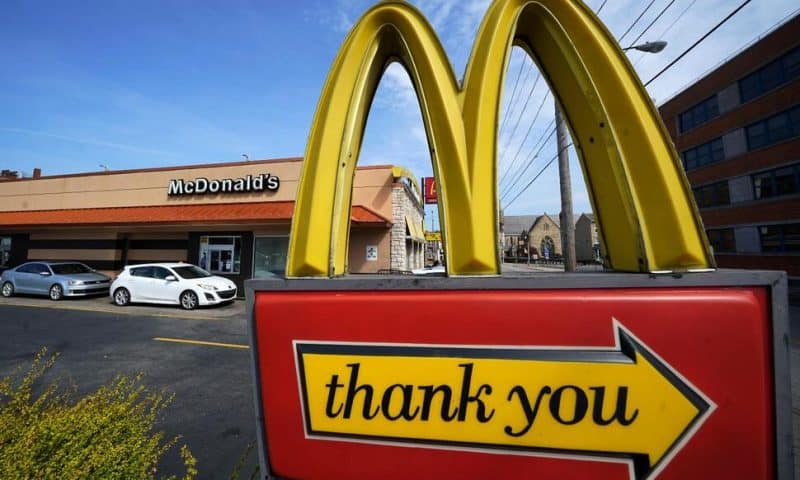McDonald’s said Monday it’s pumping the brakes on higher prices and focusing more on value meals after seeing a drop-off in visits by some customers
McDonald’s said it’s pumping the brakes on higher prices and focusing more on value meals after seeing a drop-off in visits by some customers.
The burger giant reported better-than-expected sales in the third quarter Monday. Global same-store sales — or sales at locations open at least a year — rose 8.8% in the July-September period. That was ahead of Wall Street’s forecast of an 8% increase, according to analysts polled by FactSet.
But price increases have weighed on customers. McDonald’s said its U.S. traffic fell slightly in the third quarter as it saw fewer visits from customers with annual incomes of $45,000 or less.
Chief Financial Officer Ian Borden said the company did increase U.S. prices in the third quarter but at a lower rate. McDonald’s expects its U.S. prices will increase just over 10% for the full year, he said.
“Inflation is starting to come down and we expect pricing to come down,” Borden said during a conference call with investors.
But the company also plans to focus on deals. This month, it launched “Free Fries Friday,” offering free medium fries to U.S. customers every Friday until the end of the year if they spend at least $1.
Those kinds of deals have resonated in Europe, where customer spending has been even more pressured this year. The McSmart menu, launched earlier this year in Germany, lets customers build their own small value meals. CEO Chris Kempczinski said the deal helped Germany notch its tenth straight quarter of double-digit sales growth in the July-September period.
In the United Kingdom, the company offered discounts throughout August, including 60% off Big Macs and Chicken McNuggets. And in China, where consumer sentiment is at historic lows, McDonald’s launched small burger bundles.
But Kempczinski said customer perceptions of value go beyond price. The company’s newer stores and faster service times should also continue to be a draw.
“We are focused on maintaining our value leadership and we’re going to do what we need to do to maintain our value leadership. But I think we’ve also got lots of things that go into value,” he said.
McDonald’s revenue rose 14% to $6.69 billion, ahead of the $6.56 billion Wall Street forecast. McDonald’s net income — which included a $26 million charge for a restructuring announced last spring — rose 17% to $2.3 billion.
The Chicago company earned $3.17 per share for the quarter, also beating Wall Street’s forecast of $3.00.
Shares rose 1% Monday.
Kempczinski criticized a rule released last week by the National Labor Relations Board that may classify McDonald’s and other fast food giants as “joint employers” of workers at franchised restaurants, since they set work rules and wages and benefits. Ninety-five percent of McDonald’s U.S. restaurants are owned and operated by franchisees.
The rule could make it easier for workers to unionize, since they could bargain with McDonald’s instead of individual franchisees.
Kempczinski said the new rule, which goes into effect in Dec. 26, will hurt small business owners. He expects the rule will be contested in courts and in Congress.
“In our mind this is yet another example of agency overreach coming out of D.C.,” he said.

